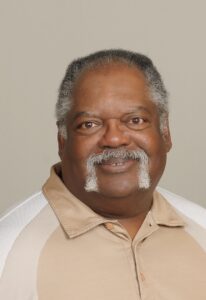
Bernard J. Wilson, Independent researcher
Monday, April 10, 2023,
2:30-3:30 pm,
ASA Koffler Great Room, and Zoom
Over the years, ASA has had numerous speakers who have dealt with the Euro-American, Hispanic, Chinese, and Indigenous history of southern Arizona. Another group forming the diverse culture of Tucson in the nineteenth century were African Americans, who began to migrate here after the Civil War. As they did, they formed social organizations to support and nurture their growing community.
In his lecture “They Did More Than Drink,” Bernard Wilson explores the roles of Black social and political organizations in Tucson after 1865. One of their most important functions was the creation of safe spaces for Black men to be heard and seen away from the racist gaze of the white establishment. Black political organizations included women and children in their spaces, making politics a family affair. The resiliency of the organizers to constantly find ways around oppressive laws and racist legislators reflects their determination to live as free citizens on the frontier. “I wondered what black people did here,” Wilson says of these early settlers. “What I found was a lot of them came to Tucson for a better way of life. They came with a drive to be independent by owning their own business or land” (Tucson Weekly, March 10, 2007). Some of these organizations continue to function today in Tucson, ensuring that there are safe spaces and continuing support for the Black community.
Bernard Wilson is an independent researcher who began his humanities research as part of a personal genealogical investigation into his own family. He has spent the past twenty-seven years researching Tucson’s African-American pioneers and community. His first book, The Black Residents of Tucson and Their Achievements: A Reference Guide (2007), revealed that Tucson had a large and thriving African-American community that included, surprisingly for many readers, mining millionaires. His subsequent publications derived from the research for that book. His current research focuses on the individual lives of the Old Pueblo’s African-Americans.
Compiled and Edited by Suzanne Ferguson, Academy Village Resident
You can connect to Zoom either by using the following URL: https://zoom.us/j/95456511620?pwd=OC9GcnJRNmJpMTdXdXFhaUpCUkx4QT09 or by opening a browser to zoom.com/join and typing in Meeting ID: 954 5651 1620 and Passcode: 85747
